This post may contain affiliate links. Please read our disclosure policy.
After some reflection on my own meal prep routine, I definitely found some places for improvement before I can consider myself a real meal prep master. Here’s a list of 12 Tips to Help You Master Your Weekly Meal Prep Routine. Let’s work on them together!
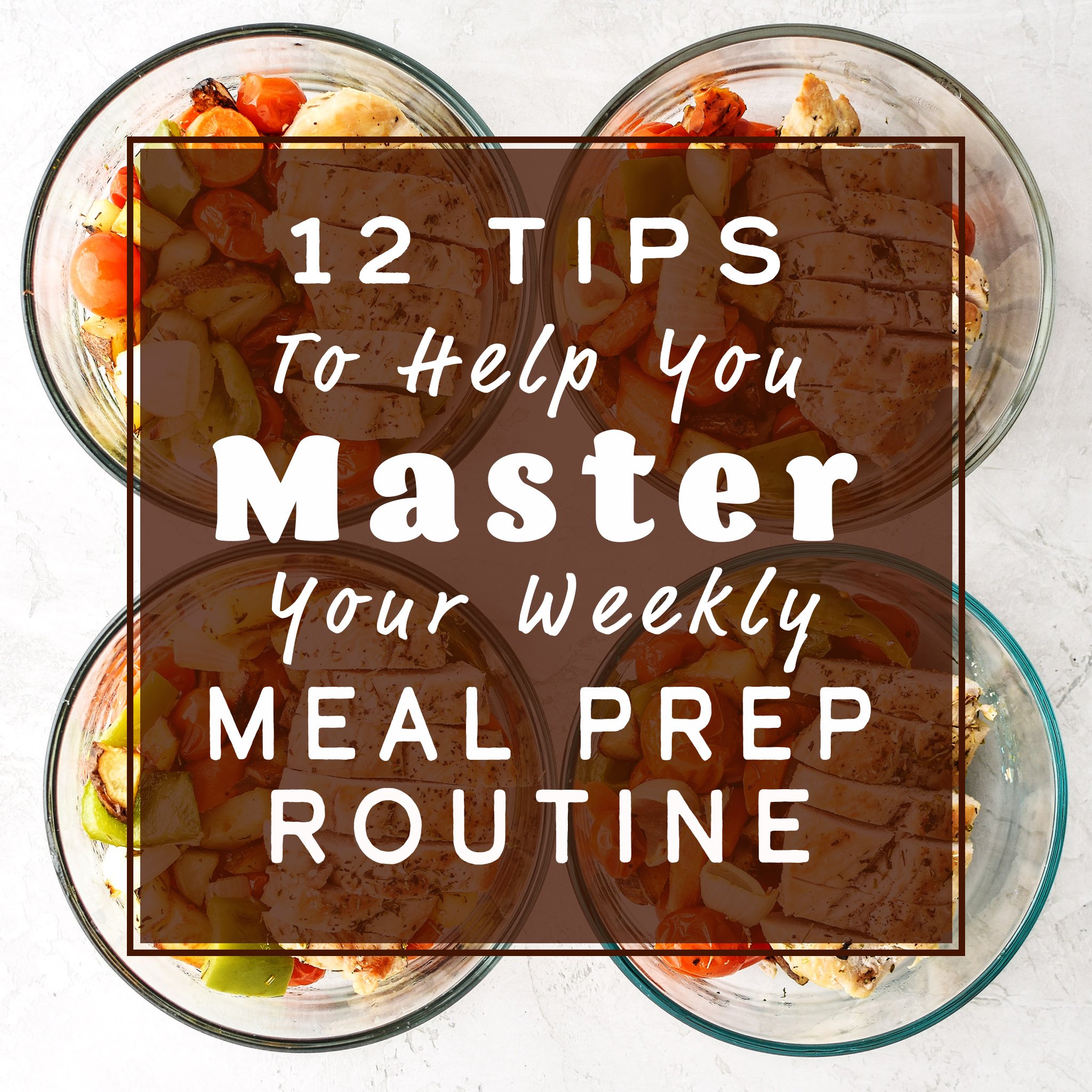
The idea of meal prepping really isn’t a difficult one to grasp. Make a meal ahead, or prep some ingredients, and boom – meal prepped. What they don’t tell you is this: meal prepping every week, continuously, is hard. Breaks are necessary. Cooking, and everything that goes with it, can be pretty tiring for anyone.
Even the masters have some shortcuts, tips, and tricks they use in order to stay on top of home-cooked meals every week. Here’s a list of everything we can work on to master our weekly meal prep routines!
12 Tips to Help You Master Your Weekly Meal Prep Routine
1. First, make a plan.
The best way to successfully carry out a meal prep session is to plan ahead. Figure out who you’re prepping meals for, what meals are needed, what recipes you’re making and if you plan to cook the whole meal ahead of time. Make sure you set aside enough time to carry out your plan without being rushed.
If you spend a moment to think about why you’re meal prepping, it can help you alter your routine to best fit your needs. Are you prepping for lunch on the go? Or to make weeknight dinners easier to throw together? The answers to these questions will affect what you need to prepare and how you’re going to store it.
FYI: You can buy one of these exact REUSABLE MEAL PLANNERS HERE!!
2. Stick to your shopping list.
Unless you have a photographic memory or eat the same food every day, you should always shop with a shopping list when doing any major grocery shopping.
I can tell you from experience, meal prep DOES NOT work if you have lots of extra, ready-to-eat food sitting in the fridge. Your stomach will crave the easiest access to food, and you might not even make it to the meal prep stages!
With a couple small exceptions (frozen food, awesome sales, etc.), you should stick to your pre-planned list to avoid overspending, overeating and food waste.
3. Buy in bulk.
There are definitely some meal prep basics that I use on daily/weekly basis. Things like grains, meats, and broth are the best examples. First of all, buying products in bulk is just cheaper (I even did the math on that!). Plus, one of the top reasons to meal prep is to save money by not eating out everyday.
So, make that concept go even further and buy your most used ingredients in a savvy, bulk, over-sized way. Here are 7 Things From Costco that Make Meal Prep Better.
Second, it’s just easier to keep a big bag of quinoa in the cabinet instead of buying a new little box every other week. I prefer less grocery store trips!
The more you meal prep, the more you’ll learn what ingredients you end up going through and can benefit from purchasing in bulk. Saving money is the goal!
4. Get your fridge, freezer and pantry organized.
If you’re a true kitchen master of the highest order, you might even keep an inventory!
Here’s something that I will admit has happened to me on more than one occasion: We DID have frozen peas, they were just underneath literally everything else in our tiny basin of a freezer.
Other scenarios that I have experienced:
- “When did we open this… oh. EW.”
- “I thought we already had _____________ so I didn’t get any. Crap.”
- “So you’re telling me we have three cases of black beans and NO refried beans?”
Avoid confusion, spoiled food, and accidental over purchases by doing the following: Label your food, check what you have before you buy (inventory would help this but I don’t even do that), clean your fridge out regularly, and keep open food in the front of the fridge where you can see it.
Here are some more tips from Buzzfeed on How to Keep Your Fridge Clean and Organized!
5. Use multiple cooking methods at once.
If you’re really trying to make the most of your meal prep session, plan out meals that require different cooking methods. Planning out your roasted veggies and chicken, baked oatmeal, and salmon sheet pan dinner is great, but did you account for the cooking bottleneck that will happen at the oven?
Instead of waiting for a single appliance to get you through a big meal prep session, try relying on at least two different ones. Use your crockpot to make an amazing soup for the week, and get it going first.
Then, you’re able to start your oven meal while the crock pot chugs along. And since the rise of the Instant Pot, there are even more options to keep your meal prep flow from getting clogged at the oven. BOOM. Meal prepped.
6. Cook and handle food safely.
Food safety is important! I worked in food service from when I was in high school allllllll the way through college. You don’t have to sit through a Food Handler’s Permit class five times like I have to learn the basics of food safety. The United States Department of Health & Human Services has an entire website devoted to Food Safety (FoodSafety.gov) where you can find the answers to all your questions.
Specific things to pay attention to:
- avoiding cross-contamination (especially when prepping lots of food at once!)
- safe minimum cooking temperatures
- storing food properly
- proper food chilling and refrigeration
7. Use your seasonings. Then try different ones.
Season your foods (or find recipes with good seasoning combos – look at the comments on the recipe). Then, try out a new seasoning. Cook with it in a different way. Put it on something you might not normally try.
This might sound like an obvious tip, but I just want to make sure it’s listed. Meal prep masters know how to season their food so they aren’t eating bland crap week after week. And they like to change the seasonings so they don’t get bored. I’m not saying you have to fill your pantry with spices – just don’t make the same salt/pepper/dried oregano chicken every dang time. You’ll get bored FAST.
If you’re looking for some inspiration, you should definitely hit up The Flavor Bible (and they have a vegetarian version!). It takes a lot of the guesswork out of mixing and matching flavor profiles so you can get straight to the good stuff.
Last thing: Here’s a Quick Guide to Every Herb and Spice in the Cupboard. Spice it up!
8. Make a double batch of dinner.
No extra planning. Dishes already dirty. No critical thinking required. Check check check.
This might be my favorite tip, and one that I strive to use all the time. Since it’s just the two of us, it’s not really that hard to make twice as much as we need. Now, if you’re a full family, the struggle is probably a little more real. Here’s my disclaimer: Making a double batch now is one less lunch or dinner to make for everyone later in the week. Seems easier to me!
My favorite dinner meals to double for leftovers:
- tacos/burritos – make a huge batch of your favorite taco meat and turn leftovers into a bowl style meal for lunch
- chicken main dishes – cook a couple extras the same way for a head start on tomorrow’s meals (we just did it with this recipe for Broccoli Cheese Stuffed Chicken Breasts)
- casseroles/bakes – you could even be creative and change the flavors, toss one in the freezer, portion out the leftovers of the second one, basically anything that saves you time (example recipe: One Pan Tuscan Chicken Pasta Bake – eat one, freeze one!)
9. Cook a batch of your favorite food staple and use it in various ways during the week.
Some food ingredients, cooked or prepped in a simple way, can easily be the base of multiple meals during the week. The most commonly used example is probably shredded chicken. Cook a few chicken breasts up, shred and store. Use it to start a casserole, tacos, salads or whatever you want during the week so you don’t have to start from scratch.
Things to prep and use in different meals during the week:
- meats: plain or mildly seasoned chicken, turkey, beef, pork, rotisserie chicken or ground taco meats
- lunch and dinner starches: quinoa, rice, lentils, roasted potatoes, anything to give your meals some substance
- chopped fruits and veggies: prep these so you can snack and save time during the week, or so they’re ready for quick roasting during the week
10. Weigh and measure things (accurately).
This includes your ingredients when cooking, and your amounts when portioning out meals. If you’re actually trying to achieve perfectly evenly portioned meals, this is the only way to go.
Grab yourself a kitchen scale. Then do some easy math: Total weight divided by number of portions. And that’s one serving. This is the best when portioning meats and starches!
11. Use airtight containers, preferably glass.
There are so many cons to plastic containers, but that’s not what this list is for. Plastic is bad for the environment. And even if you don’t care about the environment, plastic containers warp and don’t stand up to conditions like continuous microwaving, dishwashing, and even freezing. Glass will last you wayyyy longer.
Pyrex is always a good option, though the lids are still usually made of plastic. I own several of these 4-cup round ones and use them for meal prep all the time, but I’ve lost plastic one lid so far to a tear (after a couple years of constant use). But, I just ordered some of these 3 Compartment Glass Meal Prep Containers (affiliate link!) and I’m way too excited about it!
Here are more of my recommendations for the best meal prep containers!
12. Know what not to prep.
This probably sounds a little weird, but there are a few things that you actually shouldn’t make (or do) ahead of time when it comes to meal prep. Here are a few that I’ve learned along my meal prep journey:
- Yogurt and granola gets pretty mushy and disgusting if it’s touching each other in the fridge. Don’t do it!
- Avocado really sucks at going into microwaves. Like if it’s mixed into a burrito bowl or quinoa salad. Wait to mix that in until you’re about to eat the meal!
- Pesto is also bad at being heated in the microwave. Things with pesto mixed in don’t reheat well.
- People don’t like it when you reheat fish in a closed office setting. Also partially why there aren’t many fish recipes on the site.
- I’m certain there are more things not to prep. You’ll discover your favorite things to not prep pretty quickly!
Hope you found at least one of these tips useful! Thanks for reading 12 Tips to Help You Master Your Weekly Meal Prep Routine! Leave comments with more tips (there’s always room for improvement)!

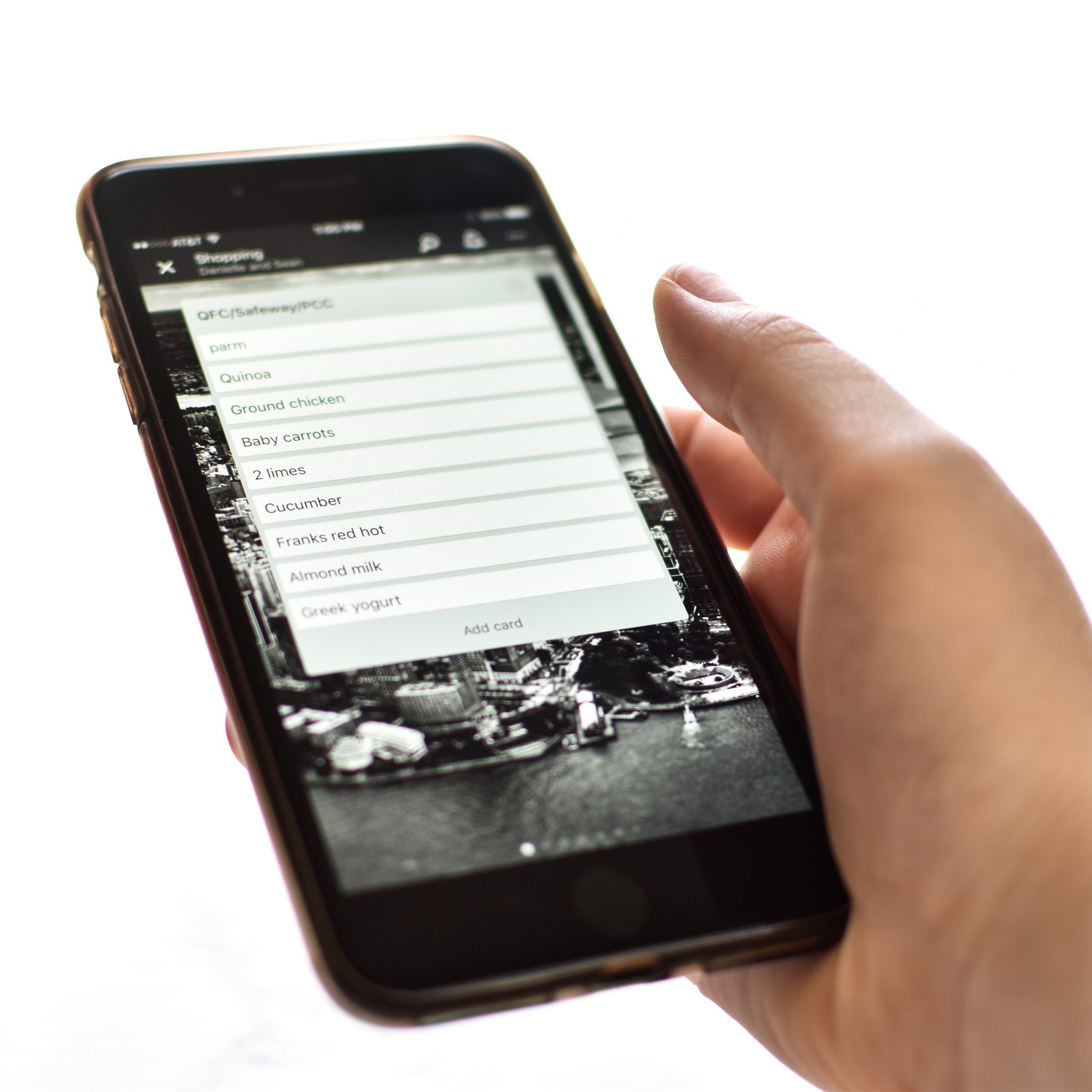
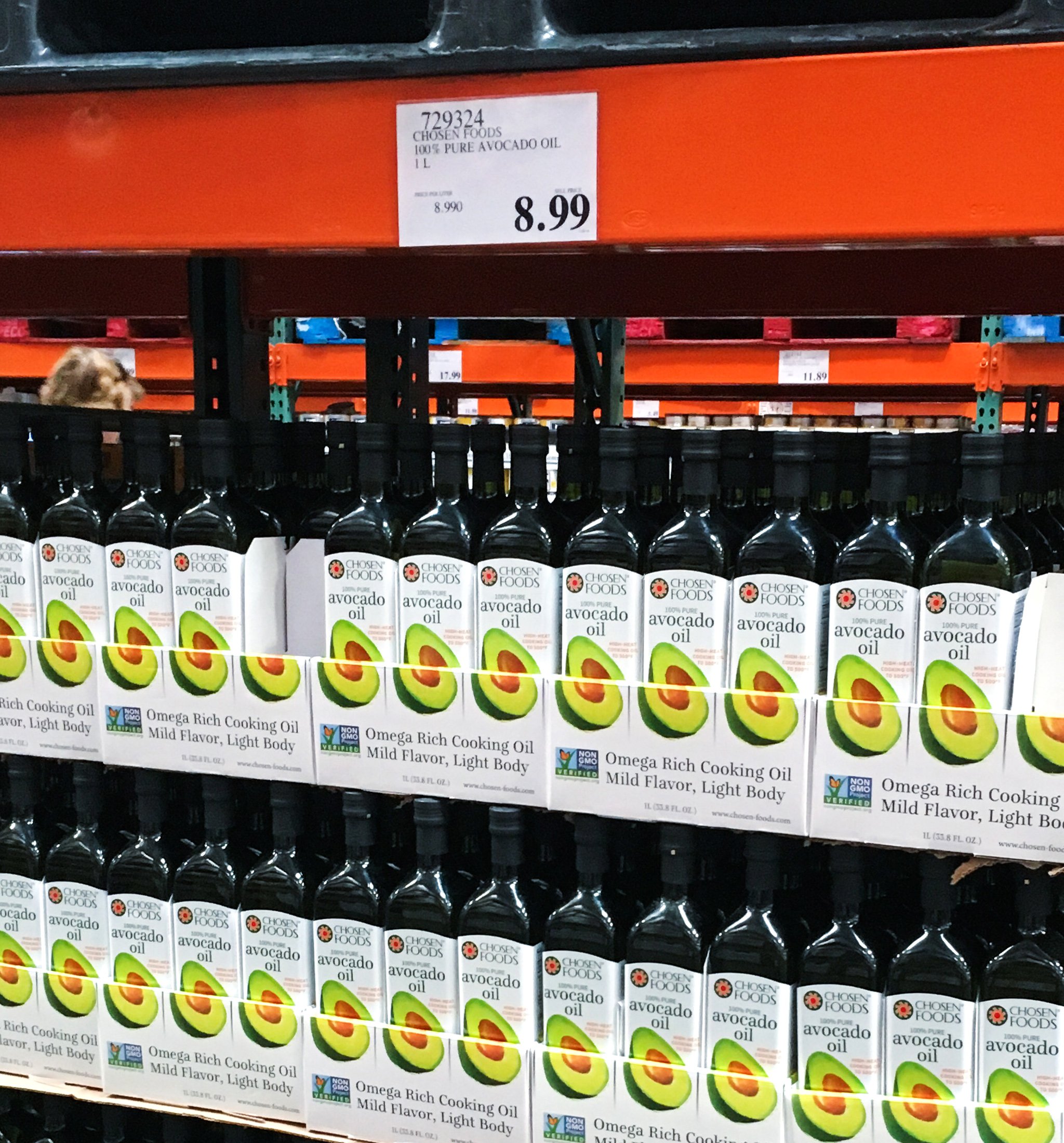
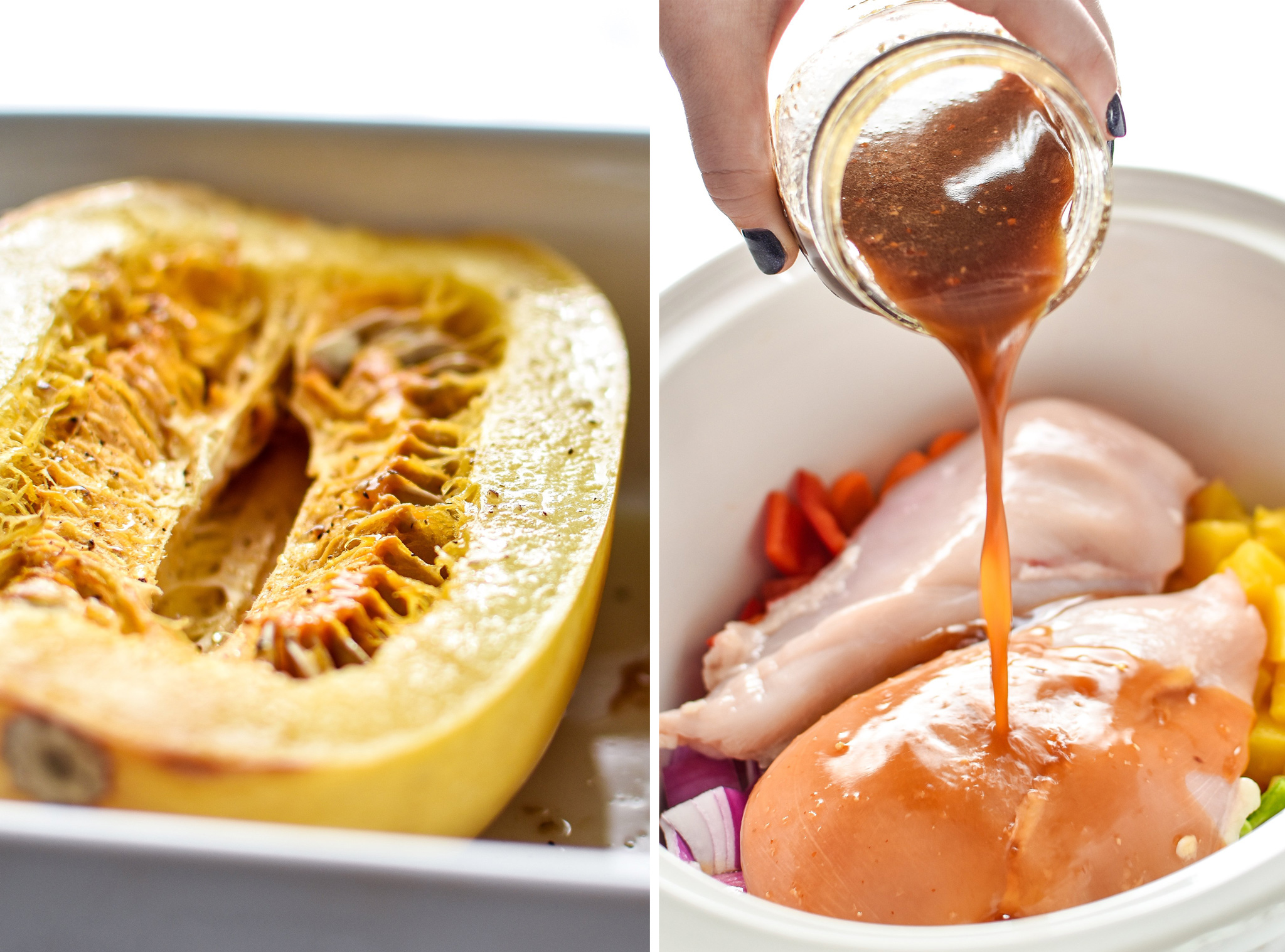

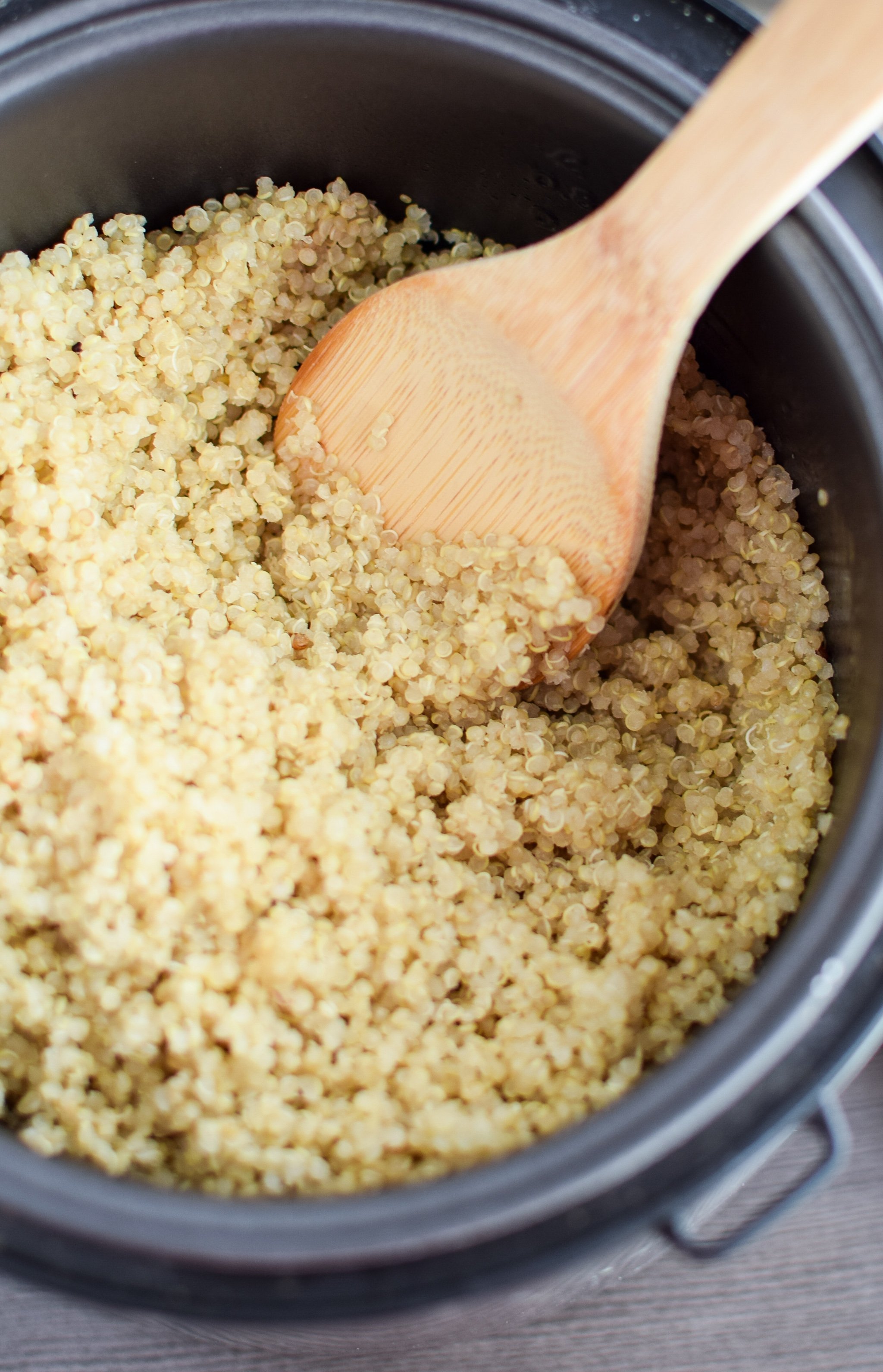
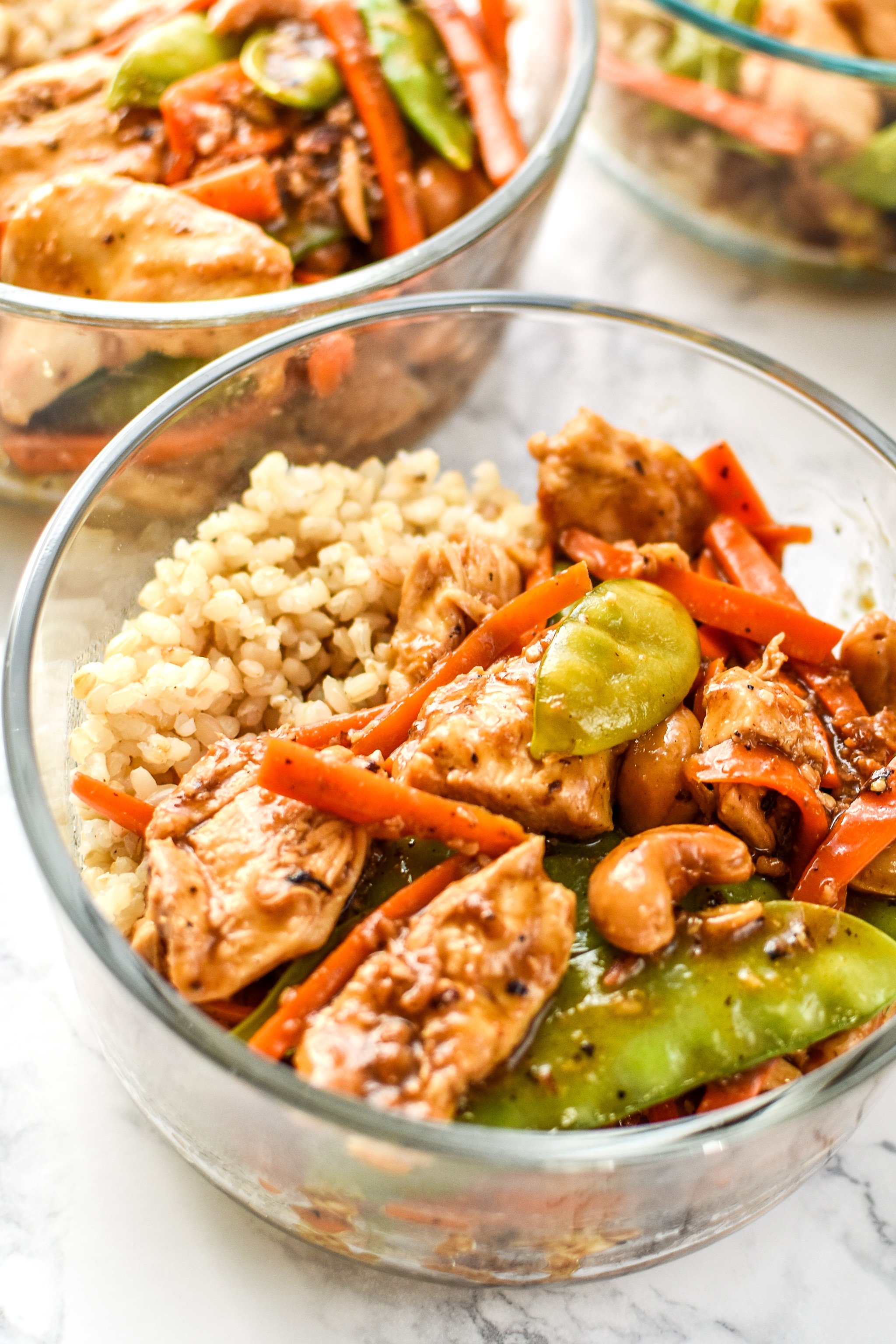

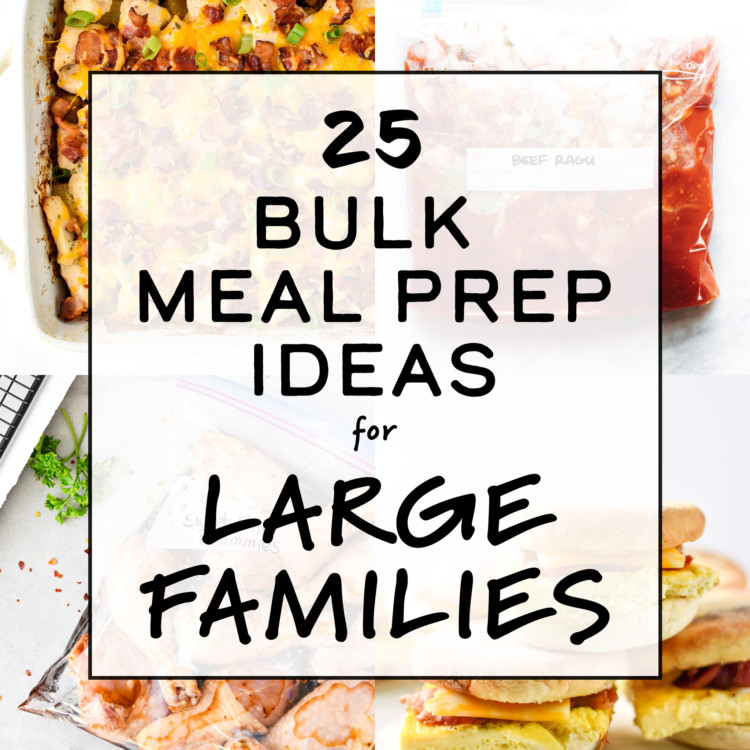
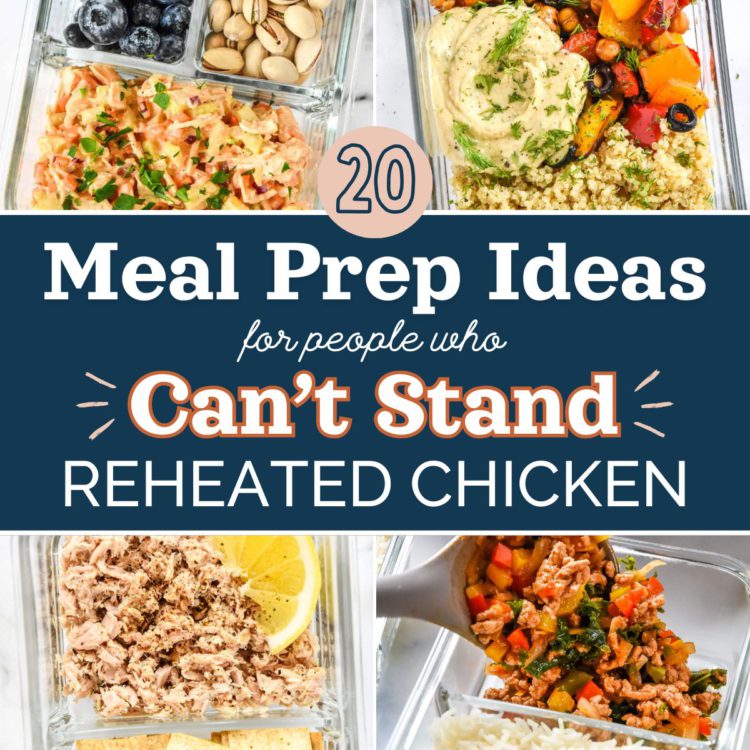
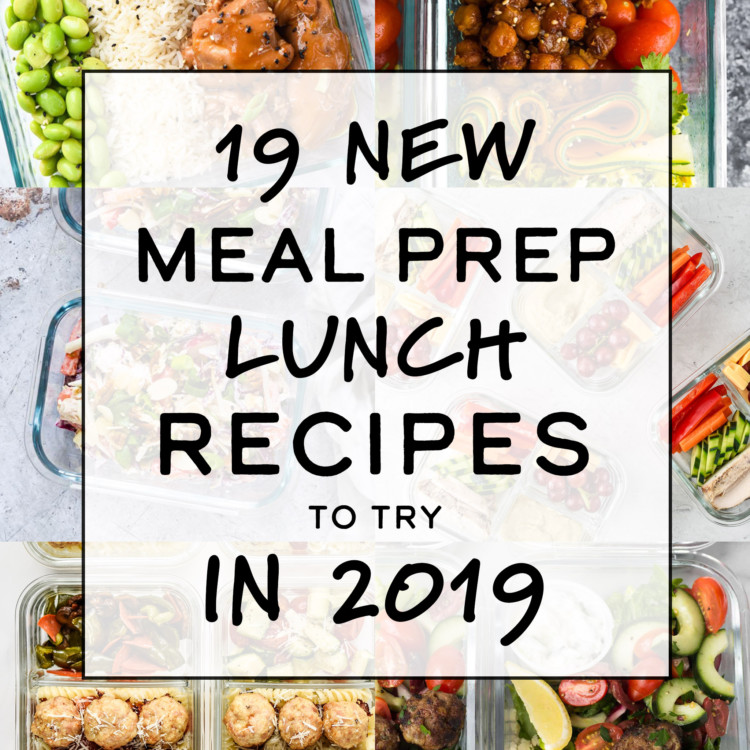
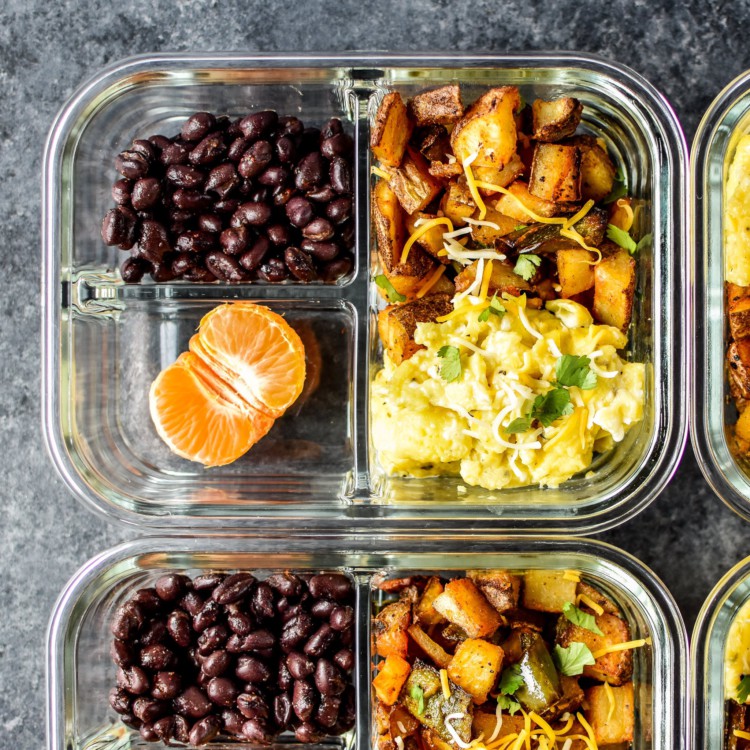
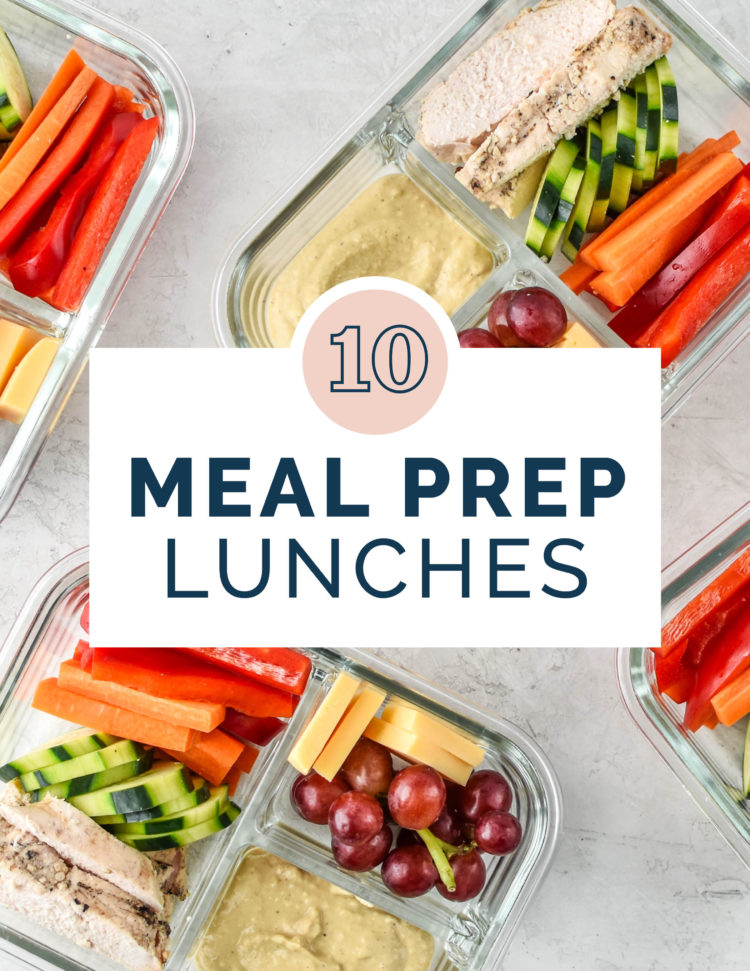
Mariana Abeid-McDougall says
Love these tips! Especially the shopping by the list one… too much spoiled food (and wasted money) otherwise!
I keep hearing about the Instapot… Maybe one of these days I’ll have to buy one, and then I can do as suggested and cook in the slow cooker and the Instapot at the same time 🙂
Thanks for the post!
Danielle says
Hi Mariana! So glad you enjoyed this post! I’m all about saving money and time by meal prepping. And yes! You should totally splurge for the Instant Pot. I love mine! Thanks for your comment!
Rai says
Wow! These tips are great! Thank you so much for sharing! I’ll definitely follow these! I already did some of these but some are new and just knew it now it your post.